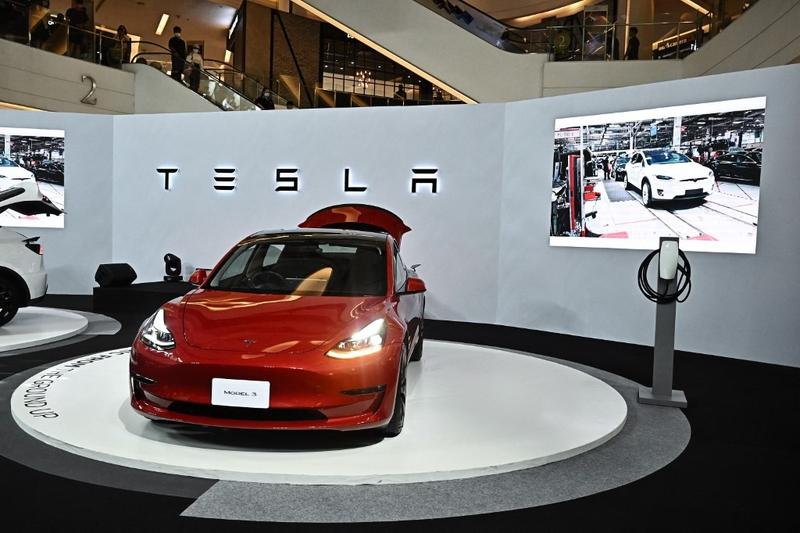 The Tesla Model 3 (right) electric car is unveiled during Tesla's official launch event in Bangkok on Dec 7, 2022. (LILLIAN SUWANRUMPHA / AFP)
The Tesla Model 3 (right) electric car is unveiled during Tesla's official launch event in Bangkok on Dec 7, 2022. (LILLIAN SUWANRUMPHA / AFP)
SEOUL - South Korea's antitrust regulator said it would impose a 2.85 billion won ($2.2 million) fine on Tesla Inc for failing to tell its customers about the shorter driving range of its electric vehicles (EVs) in low temperatures.
The Korea Fair Trade Commission (KFTC) said that Tesla had exaggerated the "driving ranges of its cars on a single charge, their fuel cost-effectiveness compared to gasoline vehicles as well as the performance of its Superchargers" on its official local website since August 2019 until recently.
Last year, the Korea Fair Trade Commission fined German carmaker Mercedes-Benz and its Korean unit 20.2 billion won for false advertising tied to gas emissions of its diesel passenger vehicles
The driving range of the US EV manufacturer's cars plunge in cold weather by up to 50.5 percent versus how they are advertised online, the KFTC said in a statement on Tuesday.
READ MORE: Tesla safety at centre of South Korean trial over fiery, fatal crash
Tesla could not be immediately reached for comment.
On its website, Tesla provides winter driving tips, such as pre-conditioning vehicles with external power sources, and using its updated Energy app to monitor energy consumption, but does not mention the loss of driving range in sub-zero temperatures.
In 2021, Citizens United for Consumer Sovereignty, a South Korean consumer group, said the driving range of most EVs drop by up to 40 percent in cold temperatures when batteries need to be heated, with Tesla suffering the most, citing data from the country's environment ministry.
ALSO READ: Tesla recalls over 400k vehicles in China for rear light issue
Last year, the KFTC fined German carmaker Mercedes-Benz and its Korean unit 20.2 billion won for false advertising tied to gas emissions of its diesel passenger vehicles.


